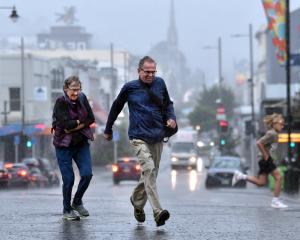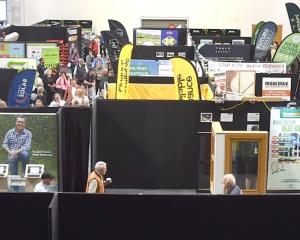
Council chairman Stephen Woodhead said the proposed allocation of more resources to make Otago more resilient had received strong backing from the community during the consultation undertaken earlier this year.
"We all understand the risk" resulting from the Alpine Fault, but this was "just one of the natural hazards" in Otago, Mr Woodhead said.
The community needed to be better prepared for "all kinds of disruptive events" and the council was building on the establishment of Emergency Management Otago last year to "support this important work" with "extra resource".
The ORC would collect a uniform targeted rate of $25.89 to meet this cost and fund Emergency Management Otago’s activity in 2017-18.
The council also voted to confirm funding for a new subsidised public bus service in Wakatipu that would provide cheap and convenient transport options. ORC’s contribution boosted funding already confirmed by Queenstown Lakes District Council and the NZ Transport Agency. This enabled more frequent services linking communities across the area, with extended hours and a trial of $2 fares.
The regional council had brought forward by 12 months its scheduled review of passenger transport in Wakatipu in response to the district’s rapid growth, to ensure there was "a fit for purpose, subsidised public transport system".
The council had also responded to community requests for a permanent and full-time staff presence in the Queenstown area, and would be reopening an office there.
The council was "delighted" to have received a record 825 overall submissions, which were considered by the hearings panel. The new annual plan reflected the community’s wishes as expressed through the consultation process, and a "turning tide" of acceptance that the council had to be more active in water management, he said.
Rural water quality limits come into force in 2020 and historic deemed permits to take water will expire in 2021.
ORC also plans to accelerate its minimum flow-setting process to have all minimum flows needed for the replacement of deemed permits set by 2019.
The regional council was not here "to please everybody" but was "adapting to the community’s needs" and was "resourcing up" to meet community needs.
The annual plan also included extra funding for research into lake snow, scoping work for the restoration of Lake Hayes, Tomahawk Lagoon, and Lake Tuakitoto; the continuation of wallaby control work and a doubling of the ORC’s wilding conifer control spending.
The cost of the extra activity was being offset by a $1.5 million special dividend from Port Otago this year, as well as the $7.5 million they were already providing, he said.














